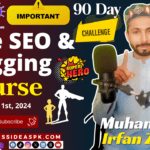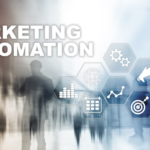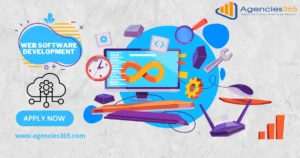In the realm of modern business, digital marketing has emerged as a dynamic force that extends far beyond conventional boundaries. At its core lies the powerful tool of social media, which has transformed how brands connect, engage, and resonate with their audiences. Yet, the scope of digital marketing transcends these platforms, encompassing a myriad of avenues that collectively shape the way businesses thrive in the digital age.
- Social Media: A Nexus of Connectivity
Social media platforms have become the beating heart of digital marketing. These virtual spaces provide a direct line of communication between brands and consumers, allowing for real-time interactions and engagement. From crafting relatable content to fostering community building, social media enables brands to create a genuine, human connection with their target audience.
- Content Pioneering: Blogs, Videos, and More
Beyond social media, digital marketing thrives on a diverse range of content formats. Blogs empower brands to establish authority and share insights, while videos captivate audiences with immersive storytelling. Infographics distill complex information into visually engaging narratives, and podcasts lend a voice to the brand’s message. The scope of content creation is expansive, catering to various audience preferences.
- SEO: Navigating the Search Landscape
Search Engine Optimization (SEO) is the cornerstone of being discovered in the vast digital landscape. It’s about understanding the algorithms that power search engines and strategically positioning content to rank favorably. From on-page optimization to building high-quality backlinks, SEO ensures a brand’s visibility and relevance when consumers search for related information.
- Pay-Per-Click Advertising: Precision Targeting
Pay-Per-Click (PPC) advertising offers precision targeting like never before. Brands can tailor their campaigns to reach specific demographics, behaviors, and interests. This data-driven approach optimizes ad spend and delivers ads directly to the individuals most likely to convert.
- Email Marketing: Nurturing Relationships
Email marketing remains a potent tool for nurturing customer relationships. Brands craft personalized, value-driven email campaigns that offer insights, promotions, and updates. Automation streamlines the process, delivering timely messages that resonate with recipients.
- Influencer Collaboration: Amplifying Reach
Influencer marketing leverages the credibility and reach of individuals who resonate with a brand’s target audience. These collaborations amplify brand visibility and create authentic connections that extend beyond traditional advertising.
- Emerging Technologies: AI, AR, and VR
The scope of digital marketing is perpetually expanding with emerging technologies. Artificial Intelligence (AI) automates processes, enhancing customer experiences. Augmented Reality (AR) and Virtual Reality (VR) provide immersive interactions, while chatbots offer instant customer support.
- Data Analytics: Insights for Growth
The digital realm is driven by data, and analytics provide invaluable insights. Marketers analyze consumer behavior, campaign performance, and trends to optimize strategies for maximum impact.
- E-commerce Integration: Seamless Transactions
Digital marketing converges with e-commerce, creating a seamless buying journey for consumers. Brands integrate marketing efforts with online stores, guiding customers from discovery to purchase.
- Holistic Branding: Consistency Across Channels
The scope of digital marketing encompasses holistic branding. Brands maintain consistency across various channels, ensuring that messaging, aesthetics, and values align to create a unified and memorable brand experience.


























